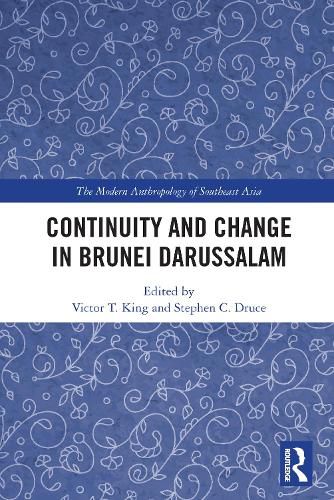Readings Newsletter
Become a Readings Member to make your shopping experience even easier.
Sign in or sign up for free!
You’re not far away from qualifying for FREE standard shipping within Australia
You’ve qualified for FREE standard shipping within Australia
The cart is loading…






This book analyses the processes of social and economic change in Brunei Darussalam.
Drawing on recent studies undertaken by both locally based scholars and senior researchers from outside the state, the book explores the underlying strengths, characteristics, and uniqueness of Malay Islamic Monarchy in Brunei Darussalam in a historical context and examines these in an increasingly challenging regional and global environment. It considers events in Brunei’s recent history and current socio-cultural transformations, which give expression to the traumatic years of decolonisation in Southeast Asia. A wide range of issues focus on foreign, non-Bruneian narratives of Brunei as against insider or domestic accounts of the sultanate, the status of minority ethnic groups in Brunei and the concept of ‘Brunei society’, as well as changes in the character and composition of the famous ‘water village’, Kampong Ayer, as the cultural heartland of Brunei Malay culture and the socio-cultural and economic effects of the resettlement of substantial segments of the population from a ‘life on water’ to a ‘life on land’.
A timely and very important study on Brunei Darussalam, the book will be of interest to anthropologists, sociologists, historians, geographers, and area studies specialists in Southeast Asian Studies and Asian Studies.
$9.00 standard shipping within Australia
FREE standard shipping within Australia for orders over $100.00
Express & International shipping calculated at checkout
This book analyses the processes of social and economic change in Brunei Darussalam.
Drawing on recent studies undertaken by both locally based scholars and senior researchers from outside the state, the book explores the underlying strengths, characteristics, and uniqueness of Malay Islamic Monarchy in Brunei Darussalam in a historical context and examines these in an increasingly challenging regional and global environment. It considers events in Brunei’s recent history and current socio-cultural transformations, which give expression to the traumatic years of decolonisation in Southeast Asia. A wide range of issues focus on foreign, non-Bruneian narratives of Brunei as against insider or domestic accounts of the sultanate, the status of minority ethnic groups in Brunei and the concept of ‘Brunei society’, as well as changes in the character and composition of the famous ‘water village’, Kampong Ayer, as the cultural heartland of Brunei Malay culture and the socio-cultural and economic effects of the resettlement of substantial segments of the population from a ‘life on water’ to a ‘life on land’.
A timely and very important study on Brunei Darussalam, the book will be of interest to anthropologists, sociologists, historians, geographers, and area studies specialists in Southeast Asian Studies and Asian Studies.